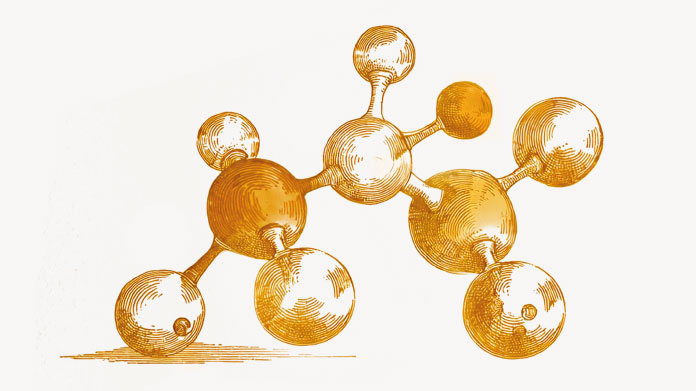Lack of energy: what should you eat if you’re always feeling tired?
Many people complain of always feeling tired and lacking in energy. Here’s a list of anti-fatigue foods to help restore your vitality.

Foods rich in vitamin C
Ascorbic acid, better known as vitamin C, is essential for maintaining good health and is recognised as a powerful antioxidant. But it’s also an important vitamin for staying in top form as it plays a role in (1):
- reducing fatigue;
- normal immune system function;
- normal nervous system function;
- normal energy metabolism;
If you experience constant fatigue, it’s therefore important to eat plenty of vitamin C-rich foods. And while the best-known of these are probably the citrus fruits, other foods contain much more ascorbic acid than, say, a standard orange:
- kiwi fruit;
- acerola cherries;
- peppers;
- blackcurrants;
- parsley;
You could also opt for a vitamin C supplement such as Liposomal Vitamin C.
Foods rich in vitamin D
Calciferol, better known as vitamin D (primarily D2 or D3) is also essential for health, especially that of our muscles and bones. Yet according to France’s National Academy of Medicine (2), many people are deficient in vitamin D (80% of the French population, for example). Such deficiency primarily manifests in chronic fatigue.
Eating more of these vitamin D-rich foods will thus help combat fatigue (3):
- oily fish (salmon, mackerel, sardines, etc.) ;
- dairy products;
- oysters;
- mushrooms;
- le foie gras;
- le calves’ liver;
However, as the National Academy of Medicine points out, Western diets rarely provide sufficient daily vitamin D so it’s a good idea to supplement with vitamin D3.
Foods rich in vitamin B9
Vitamin B9, or folic acid (well-known to pregnant women),is provided by the diet in the form of polyglutamates, also called folates.
Vitamin B9 is essential for cell multiplication, gene regulation, and the formation of red and white blood cells. And since it’s impossible to overdose on B9, increasing your intake may be a sensible move since it helps, in particular, to reduce fatigue(4).
Vitamin B9 is predominantly found in the following foods:
- brewer’s yeast;
- liver;
- asparagus;
- oranges ;
- pulses;
- dark green leafy vegetables such as cabbage, rocket, lamb’s lettuce, chard, spinach, etc.
It’s important to note, however, that some of these foods can produce unwelcome side-effects when consumed in large quantities. Brewer’s yeast and cabbage cause unpleasant flatulence while chard and spinach may encourage the return of kidney stones in those who have suffered from them before.
To avoid such risks, you could instead take a course of vitamin B9 supplements, such as SuperFolate.
Foods high in iron
According to the World Health Organization, more than 30% of the global population is anaemic, yet iron, like many other micronutrients, is essential for good health. Involved in producing haemoglobin and myoglobin, iron plays a role in (5):
- reducing fatigue;
- normal energy metabolism;
- normal cognitive function;
An iron-rich diet is therefore important for preventing anaemia, particularly in certain groups (children, teenagers, women of child-bearing age, pregnant women, nursing mothers, high-level sportspeople), as well as vegetarians and vegans.
In fact, the body absorbs iron from plant sources five times less efficiently than that from animal sources. It’s worth noting here that supplementing with vitamin C can potentially compensate for this by promoting the absorption of iron. Here are some iron-rich foods:
- offal;
- red meat ;
- poultry ;
- fish ;
- sea food ;
- pulses ;
- dried fruit ;
- nuts and seeds ;
- spirulina ;
But if your diet fails to provide an adequate intake, you can, after consulting your doctor, correct a confirmed iron deficiency with supplementation, for example, Iron Bisglycinate.
Foods rich in magnesium
Involved in energy production at a cellular level, the mineral salt magnesium is essential for the body to function properly. The first signs of magnesium deficiency are persistent fatigue, headaches, stomach aches and cramps.
The best dietary sources of magnesium are:
- green vegetables;
- brewer’s yeast;
- whole grains;
- oilseeds;
- pulses;
- chocolate;
- magnesium-rich mineral water;
And here again, you can ensure your magnesium needs are met by taking a dietary supplements such as OptiMag.
To conclude then, you need to eat a varied, balanced diet, incorporating all types of food – fresh fruits, vegetables, whole grains, pulses, oilseeds, meat, fish, etc. if you want to be in top form and feel less tired. Dietary supplements can also offer support in helping you recapture your lost vim and vigour.
References
- EU Register on nutrition and health claims, EFSA, 10/2015
- Acad. Natle Méd., 2012, 196, nos 4-5, 1011-1015, séance du 15 mai 2012
- EU Register on nutrition and health claims, EFSA, 08/2016
- EU Register on nutrition and health claims, EFSA, 03/2015
- EU Register on nutrition and health claims, EFSA, 2014
Keywords
1 Days
Excellent!
Products are great and delivered fast!
PARDINI Debora
1 Days
From order to receive the product
From order to receive the product, the process is smooth & fast. It’s good to customers.
WONG Mei Ling
3 Days
Fast delivery
very quick delivery to italy. product is good.
Customer
4 Days
Prompt delivry !!👍
Prompt delivry !!👍
SWEET Christine
4 Days
Good delivery and flawless quality
AS far as delivery and the visual quality are concerned, Supersmart is excellent. I will not comment on the efficacy of the products themselves, since that is only possible over a longer period and in a large customer base compared to people who do not consume a particular product.
Roger De Backer
5 Days
Perfect services
Perfect services, perfect support, great articles about products
Michaela Alali Beitlová
6 Days
Great experience and effective supplements
I’ve purchased many types of supplements from this company over the course of years to treat a few issues, and I’m satisfied with their quality. After using them consistently for a period of time, I can say they met my expectations and I could feel real health benefits that built up over time. Deliveries are always quick. I recommend this company to anyone looking for high-quality supplements.
Giordano
6 Days
Es hat alles gestimmt
Es hat alles gestimmt. Top
marina thieme
9 Days
Great product
Great product, but still evaluating its effectiveness. Highly recommended. Super efficient delivery.
Chalise
13 Days
Quality products
Quality products , efficient and effective customer service. You can’t ask more
CLaudia
19 Days
Good quality product and customer service.
So far, I'm liking this product, and the customer service was very good.
ELZL
26 Days
The products I use are excel·lent
The products I use are excel·lent
ROSAS Josep Maria
34 Days
Delivery is prompt and I never saw a…
Delivery is prompt and I never saw a quality problem with the manufacturing. It is not possible to assess efficacy on a personal basis, since too many factors come into play. Efficacy can only be assessed statistically with a sufficient number of cases.
Roger De Backer
35 Days
I collaborates with the Supersmart…
I collaborates with the Supersmart more than 10 years. Every thing is going good. Quality of the things is good. Delivery comes in time. Five stars definitely !!!
Oleksiy
35 Days
All good
Simple, frictionless site, easy ordering, good delivery updates and execution.
Chris Robbins
of experience
your money back
##montant## purchase



